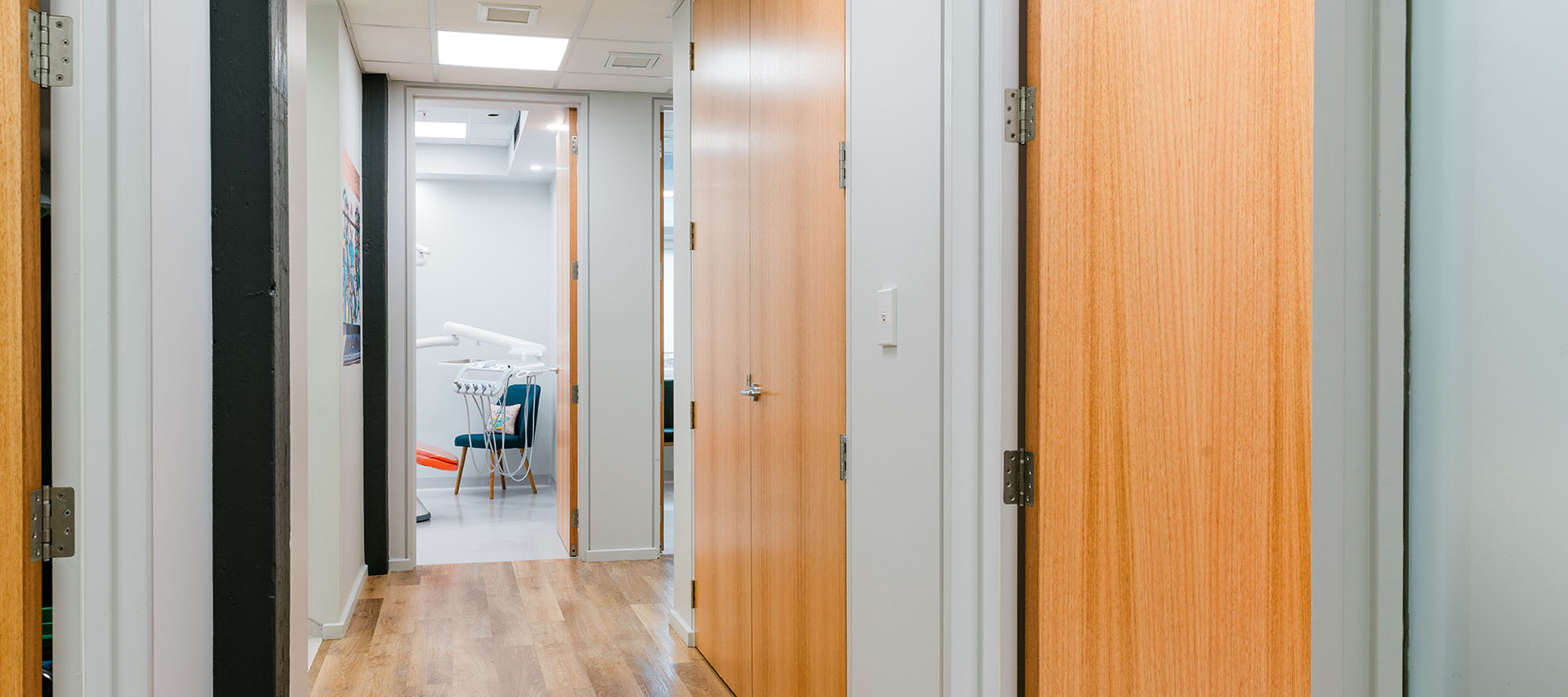Wisdom teeth are usually the last teeth to erupt in an adult’s life.
There are typically four in total, and they can appear anytime from 16 years of age. Wisdom teeth are very far back in the mouth, and therefore we often lack room for them.
If your wisdom teeth erupt perfectly and are well aligned, you might not need to have them removed. Unfortunately, they can grow at peculiar angles, and maintaining them can be a challenge. Problems that can arise from an impacted wisdom tooth are:
- Inflammation or infection of the overlying gum;
- Decay of the wisdom tooth and/or the molar tooth in front;
- Gum disease and/or root damage of the molar tooth in front;
- Bite problems due to upper wisdom teeth growing unfavourably;
- Cysts or tumours surrounding the wisdom tooth.
Wisdom teeth can be associated with many problems in our mouth and jaws throughout our lifetime so it is often recommended to have them removed at a younger age - this usually results in a quicker and less complicated surgery.
URBAN LEGENDS AND THE T(R)OOTH
Unfortunately, social media and the internet has tainted what REALLY happens during this procedure. Every wisdom tooth is different, and every person is different. Some wisdom teeth extractions are extremely straightforward, while others are very complicated and time-consuming. Therefore, having a comprehensive consultation with your surgeon is the most important part of the process. A good discussion about your unique and specific situation will enable us to find the perfect solution to get you through this moment of your life.
Possible Complications
INFECTIONS
With any surgery, infection is always a risk. However, it is relatively uncommon and, given the medications and surgical techniques used, it is not expected to occur.
BLEEDING
It is normal to have some residual oozing from the surgical area, particularly if saliva is present. If you are worried, you can put pressure on the area with a moist cotton gauze and bite down firmly for 15 minutes. An alternative is to use a moist tea bag instead of cotton gauze. If bleeding persists, please get in touch.
SINUS COMPLICATIONS
The sinuses in the upper jaw are in very close proximity to the upper wisdom teeth. There is a very small chance that when this tooth is removed, an opening into the sinus is created. The majority of the time this will heal spontaneously. However, in the rare instances where the opening persists, a second surgical procedure is required.
TEMPORARY OR PERMANENT NUMBNESS
Impacted lower wisdom teeth are very close to two nerves. One that supplies the tongue, and the other supplies the lip, chin, and skin on that side. Due to the close proximity of these nerves, they can be bruised or damaged from the surgery. Extreme care is taken at all times during the surgery to avoid permanent damage. However, there are always risks with any surgery and permanent damage is said to be around 0.2%-0.5%. In more severe or difficult cases, the risks are higher and this would have been discussed with you prior to surgery.
DRY SOCKET
This can happen to anyone, and is more common if the extractions were difficult or if you smoke. When it does happen it usually occurs around the 5th day after surgery. You will notice a bad smell from your mouth and an increase in pain. Pain medication can be ineffective. This is not an infection, but you must contact us straight away as it is easy to treat.
PROLONGED JAW STIFFNESS
Occasionally, the ligaments and muscles of the jaw joint can become stretched and strained during surgery. This usually subsides within the week, but sometimes it can persist. It is more common if you have had a clicking or locking jaw in the past.

